Food safety: Five things to watch out for
- Published
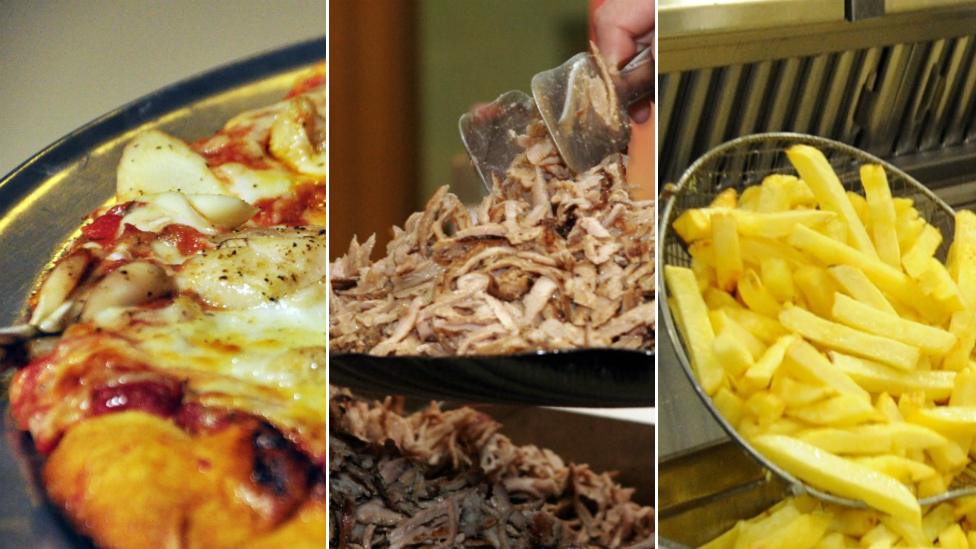
The owner of an Indian takeaway in North Yorkshire has been found guilty of manslaughter after a customer with a nut allergy was served a meal containing ground peanuts.
The trial was told Mohammed Zaman had cut corners by swapping the thickening agent almond powder for the cheaper groundnut powder, which contained peanuts.
Although the vast majority of restaurants are safe, a number each year are found to have breached laws and guidelines. BBC News looks at some things to be careful of when ordering food.

Restaurants not highlighting allergens
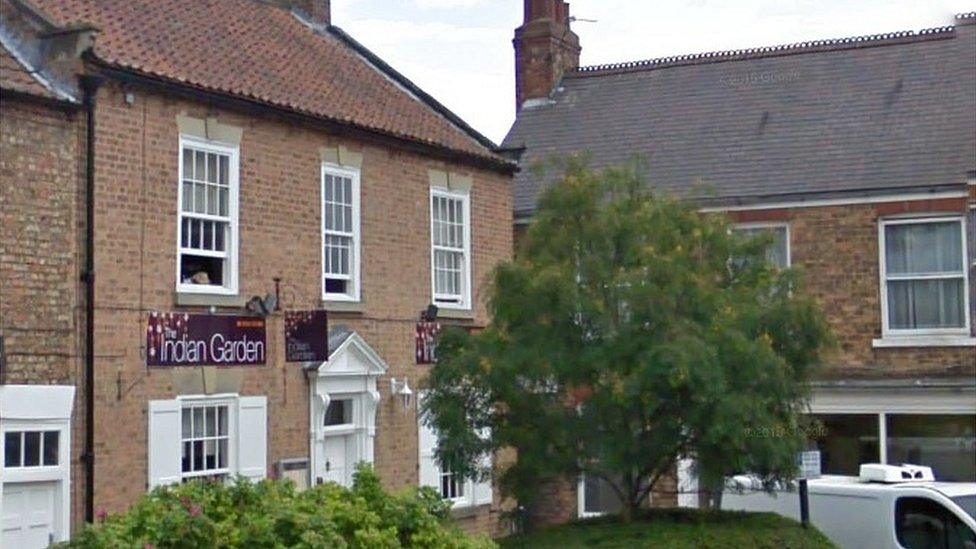
Since December 2014, takeaways and restaurants have been required by law to let customers know if any of the 14 most dangerous allergens are ingredients in their food.
They include peanuts, eggs, milk, fish, crustaceans and mustard.
Paul Wilson, who suffered an anaphylactic shock after eating a meal from Zaman's business, died before the change in the law, but the trial heard he had flagged up his peanut allergy to the restaurant and his meal had been labelled as "nut free".
David Pickering, of the Chartered Trading Standards Institute (CTSI), said: "Some [restaurants] will have it in a book, some will give you the information verbally. If they can't give you it, don't eat there."
The Food Standards Agency (FSA) says people are often still not given this information.
In a recent FSA and Allergy UK survey of more than 1,000 people, one in four said they or a family member had suffered an allergic reaction while eating out.
Chun-Han Chan, FSA allergy expert, said the food safety watchdog had translated allergy advice information into several different languages to provide the best possible guidance.
She said: "We want to stop unnecessary deaths and hospitalisations by helping food businesses provide accurate allergy information."

Serving the 'wrong' meat

In 2014, the consumer organisation Which? sampled 60 takeaway lamb curries and lamb kebabs in London and Birmingham and found 40% contained other types of meat, with some containing no lamb at all.
The FSA then conducted a wider study, published in February 2015, with 84 of 307 samples containing non-declared meat.
Of these, one-fifth had used beef instead of lamb. Others contained a presence of beef, chicken, pork or turkey. The law requires food to be accurately described with fines of up to £5,000 enforceable.
The FSA described this as "one of the simplest forms of food fraud", with spicy sauces often used to "mask differences in taste".
The CTSI said the move was usually driven by the price of meat.
Mr Pickering said: "Sometimes the takeaway isn't aware of the meat they are actually getting from their supplier.
"People want to know what they're eating, mostly due to their personal preference, but more importantly for religious reasons, as pork or beef are often used as substitutes."

Mislabelled ingredients

It is not just meat which can be substituted. Other ingredients such as oils, milk, honey and spices are commonly mislabelled to cut costs, according to research published in the Journal of Food Science. , external
Often, the restaurant or takeaway is helpless to spot this if it has been mislabelled by the supplier.
Saffron, a key ingredient in several cuisines, including Indian, Spanish, Turkish and Persian, is labour intensive and famously expensive.
Spanish saffron, which is known for its high quality, is sometimes actually saffron imported from other countries before being relabelled.
Mr Pickering said: "We're hoping the FSA will be more active in using international intelligence to spot where and when then these substitutes may appear."
The FSA said it monitored "shortages of raw materials and spikes in consumer demand" through its Emerging Risks programme., external

Excessive artificial colourings
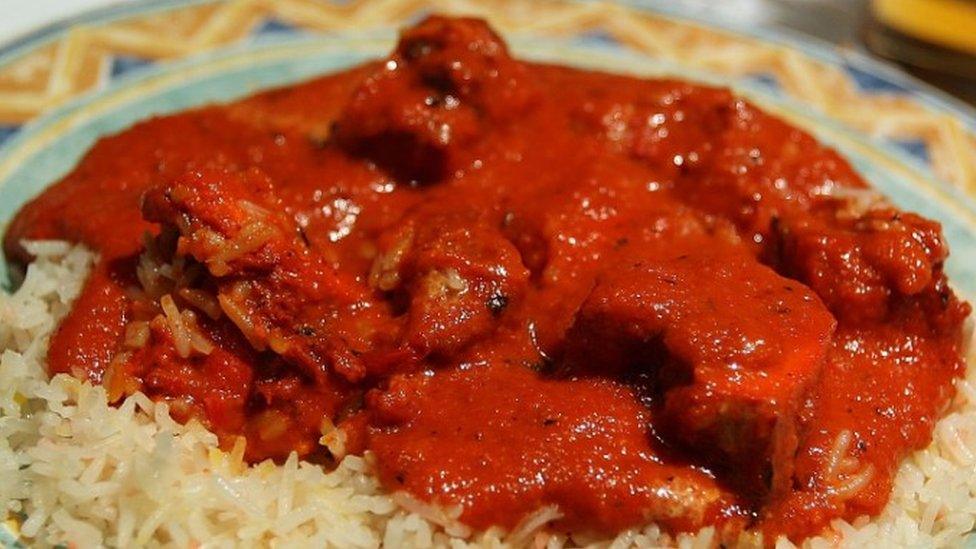
Many of the nation's favourite takeaway dishes often contain artificial colour to make them look as appealing as possible.
It is a criminal offence to sell dishes containing excess artificial colour, with food vendors facing fines of up to £5,000.
The FSA has long called for the phasing out of artificial colourings, including sunset yellow (E110), allura red (E129), carmoisine (E122), tartrazine (E102), quinoline yellow (E104) and ponceau 4R (E124) because of their reported link to hyperactivity in some children.
An EU-wide mandatory warning, external has to be placed on the labels of pre-packed foods that contain any of these colourings, but there is no requirement for it to be stated on takeaway or restaurant menus.
These colourings produce yellow, orange and red shades, but restaurants and takeaways also use natural spices such as turmeric and paprika to provide colour.
In 2015, Walsall Council trading standards found seven out of eight chicken tikka or chicken tikka masala dishes tested contained sunset yellow (E110) or ponceau 4R (E124).
Mr Pickering said eateries often fail to "look at the label", so are not aware of maximum limits.

Poor hygiene
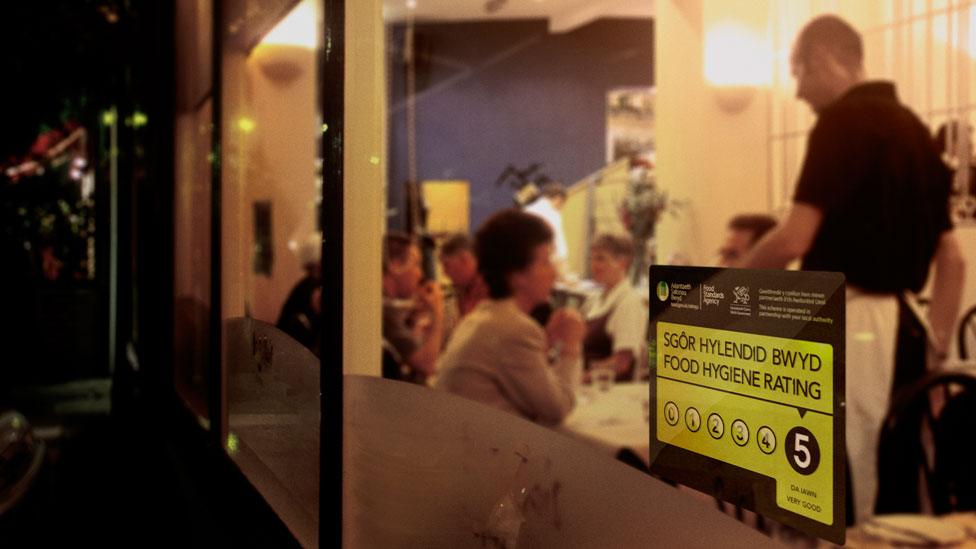
Green hygiene stickers are frequently seen on the front of restaurant or takeaway businesses in the UK, but it is only in Wales where they have to be displayed by law.
All eateries are subject to unannounced inspections by local environmental health officers, with a rating of 0 to 5 awarded.
The FSA provides ratings for takeaways and restaurants throughout the UK on its website, external. Poor food hygiene or quality can be reported to the relevant local authority.
Mr Pickering said: "We need information from people - we may not investigate each complaint, but it will help to give us a general picture if certain places crop up again and again."
Earlier in May, the BBC's 5 Live Investigates programme found almost 47,000 fewer inspections were carried out in the UK in 2014 than in 2003, due to factors including reduced council budgets.
An anonymous inspector said there were "fewer officers trying to do more inspections", with the FSA describing the situation as one of "growing concern".

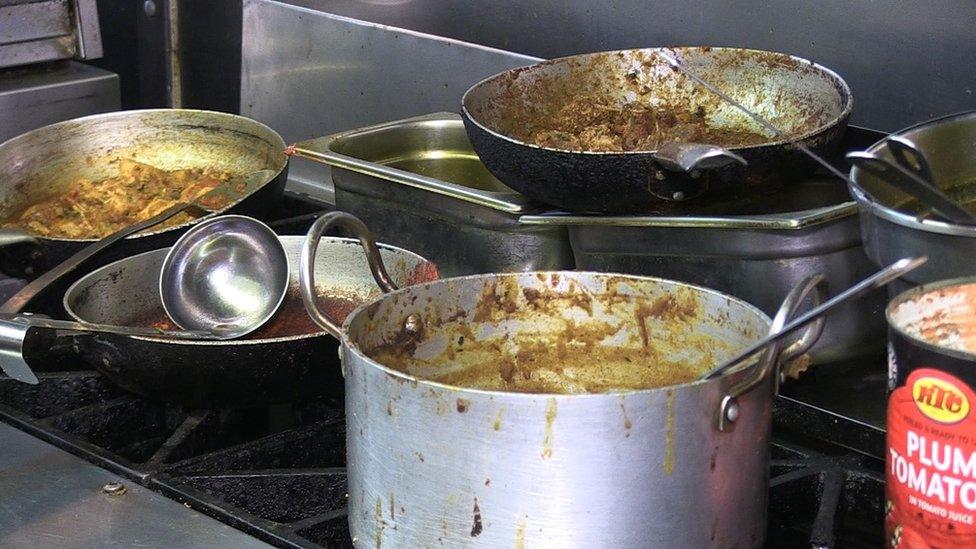
Food premises are rated from 0 (urgent improvement necessary) to 5 (hygiene standards are very good)
Inspectors look at how food is prepared and cooked, as well as reheating, cooling and storage
They also look at the condition of the building and what the management are doing to make sure food is safe
Premises seen as high risk should be inspected at least every six months
Eateries are only as good as their last inspection

As many order takeaways over the phone or online, measures are being introduced to make sure the customer is always aware of hygiene ratings.
From November, takeaway leaflets and menus in Wales will have to point customers to the food hygiene ratings website and remind people they have a legal right to ask for the rating when they order.
It is expected the FSA will shortly be presenting research to the government to build the case for the mandatory display of ratings in England.
- Published23 May 2016

- Published17 January 2016
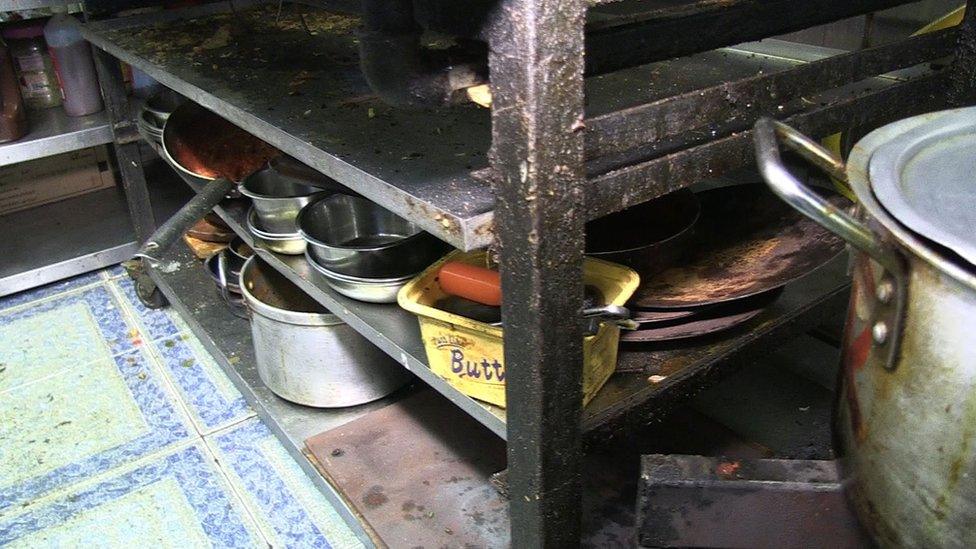
- Published1 May 2016
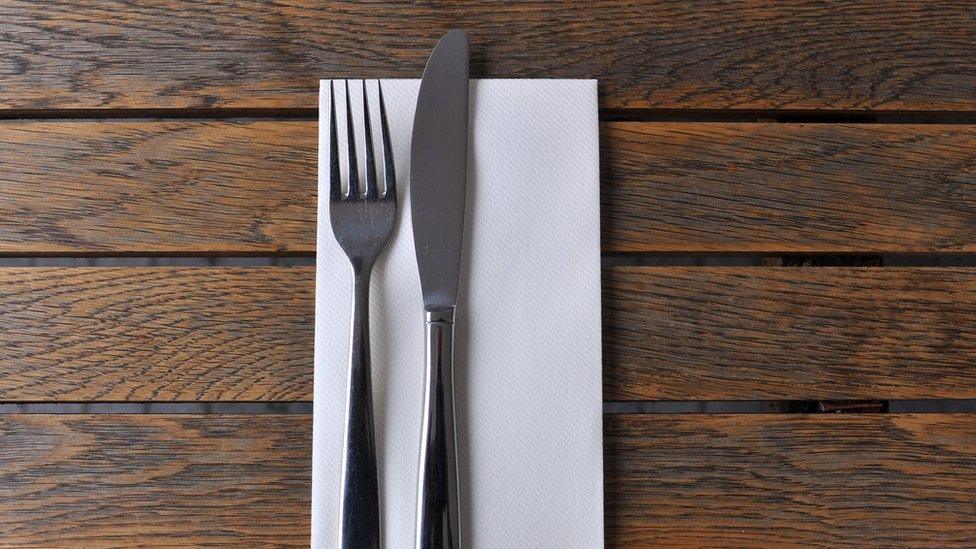
- Published17 April 2014
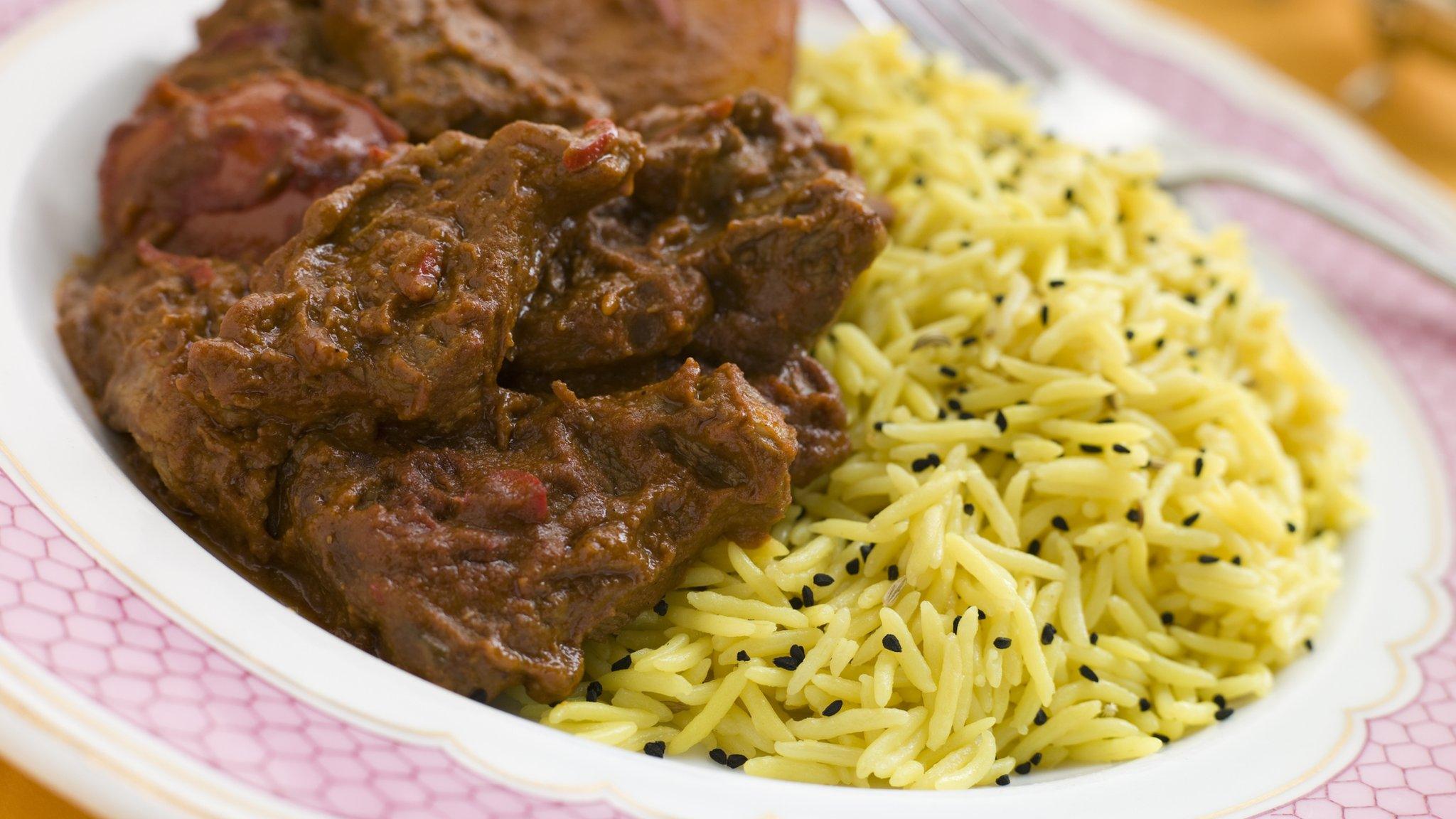
- Published28 November 2013
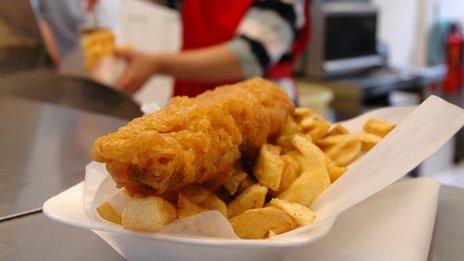
- Published15 February 2013
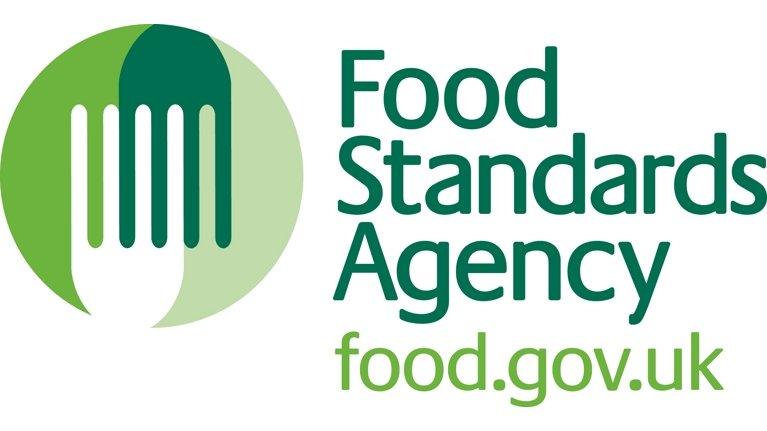
- Published3 September 2011